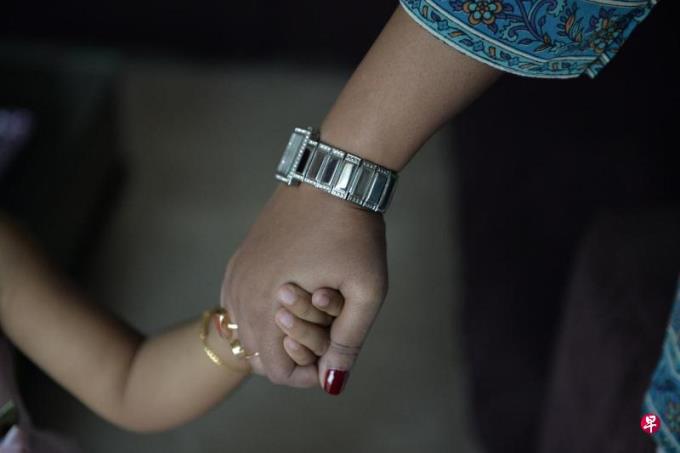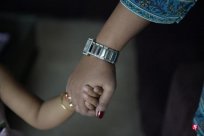
Children adopted by multinationals, the real situation and mental health problems of long -term periods, are it hidden by a unreal "Cinderella" myth?Has transnational adoptions have actually become an industrial chain that is too complicated and beneficial?Does growing in foreign countries meet the greatest interests of orphans and orphan children?It is worthy of repeating.
In 2018, I based on the media's report on international adoption micro -reports, combined with the American adoption families in life and teaching, and the experience of communicating with children who are studying at university and growing up, pointing out in ChinaSociety should face up to the psychological pressure, racial discrimination, and identification of the crisis that the adopted children facing the growth process.Under the premise that most western adoption parents are good people, I think that Chinese orphans will be more conducive to growth in domestic adoption.
This online article has not attracted a lot of attention, but after the Chinese government announced the termination of international adoption in early September this year, it was re -issued by the original online media "Duan Media".Attributed to the New York Times reporter's telephone interview, and New Year's quotation attracted a written interview with Bloomberg's email.
These two basically only intercept my analysis of China's economy and living conditions in the past 30 years, and the analysis of national self -confidence has also been greatly improved;A kind of misunderstanding of "not being adopted by the American middle -class family, the Chinese orphans can only grow old in the orphanage, the Chinese have no consciousness, and the society is particularly hostile to the disabled."This thinking further strengthens that Chinese orphans can only be rescued by Americans, otherwise it will live darkly; it is this "redemption" hallucination that leads to some Chinese cursing those orphans who return to China to find roots.
Of course, China needs to be improved in terms of institutional. In terms of policy, it is more conducive to adopting orphan, or even disabled orphan in need and conditional families.Consciousness and concepts are also false.The adoption of Chinese folks in relatives or support behaviors is very common. It is suitable for abandonment caused by poverty and the loss of parents.infant.
As I have emphasized, the adoption between Chinese people is relatively easy to conceal because there is no skin tone and the difference between human race, or it is concealed that a orphan is mature to deal with this crisis, rather than like a cross -race family.The same is the same as adoption. From the childhood and childhood, it was unable to escape into an embarrassing situation in which the surroundings were reviewed and inquired.Here, "concealment" is essentially a kind of goodwill in conforming to humanity and taking care of children's mental health.
I have also seen non -relative adoption.In the 1970s, the adopted abandoned babies, after the successful family seeking relatives, let go of their hearts, completely returned and took care of the adopted families, but because they were in the same city, they were not as entangled as they across the borders and races.There is also a neighbor couple adopted an orphan because they could not have children. They were not in good economic conditions. They still supported their daughters to finish college and found a job.These are extremely ordinary things around them. They have never attracted media attention. Unlike some American adopted families, they often appear in the media, claiming how to treat children or show their family love.
Among Chinese celebrities, singers Cheng Lin, Han Hong, director and actor Feng Xiaogang Xu Fan adopted orphans, and those who pay attention to Chinese movies will probably know that female star Yang Mi Zeng Suyan appears in the photo.Orphans adopt and rescue the release of the film baby (2018).This film's evaluation is not high, but it is solemn and serious, and it directly reflects the attention of the conscience director's attention to this issue.But instead, I have never seen Americans in addition to repeating the old -fashioned model of super heroes plus beauty, to present the situation of the American orphans in movies.
The same complicated adoption obstacles
In the message area reported in New Year, there are Americans asking that there are tens of thousands of orphans in the United States. Why don't Americans do domestic adoption first?One answer is to say that Americans are worried about abandoning their mother's drug addiction, and the other is to say that the United States' legal policies are also very harsh on adopting their parents.The answer I saw in 2018 is that the parents of Americans are afraid of abandoning their children to regret, causing trouble, and prefer to stay away.Whatever the reason, it is here to see the motivation of adoption, the actual concern of the adopters, and the obstacles in policy and regulations. It is as complicated as the United States as in China, and it is not a "big love" to explain.
I have seen the orphan adopted by Americans.A couple of colleagues are white professors in the United States, humble and low -key, because they adopted a white boy because they did not have a child.Such adoption is provided with transnational travel, various tedious procedures, saving a lot of costs, but also avoiding the recognition crisis caused by skin color and racial problems.My son's school bus driver was a very kind and low -income white woman in elementary school.Looking at you in the sky.She raised this boy who had hidden diseases in addition to autism until he died first.However, like Chinese adoption, such real and ordinary stories have never been reported by the media.
Some people think that China is a terrible society that is not friendly to disabled people, and I can't fully agree with this.In the 1980s and 1990s of my growth, students in middle school classmates who had disabled due to pediatric paralysis or childhood treatment would be taken care of without taking physical education classes.
Among the adult friends of my parents at the time, I have seen patients with confidence and active pediatric paralysis not only for their own efforts, but also engaged in literary creation and married a sound and talented female writer;Make programs in an audiovisual company.At that time, my neighbor had a pediatric paralysis patient to do business and was a well -known "stamp king" in the circle.His wife was disabled because of burning. The couple had a second child because of the stricter family planning because of the country's care.They have eaten their own efforts, lived very dignified, and they are not humble with their neighbors. Not only did they not be discriminated against, but they also received some respect from the heart. At least they were respected than some neighbors who were not able to do well than some limbs.
In the New Year's comment area, I see the opposite feeling.The adoption of adoption in the United States almost fell to the ground that their adopted children were healthy and happy; and many of the comments of many adopted children said that they were extremely mentally stressful and needed to be adopted.And regret.In my opinion, no matter how good the material conditions are, and no matter how much the American society gives these children a chance, self -implies that you must be grateful and prove that it is worthy of being adopted.Evidence and adoption of parents ask their children to be grateful.Of course, critics can question whether it takes a lot of time and money, does it also cause some adoptive parents to adopt children who were originally fragile, and they were eager to extort themselves with benefactors and savings?
Of course, I don't say that China's welfare system is perfect.In fact, as early as the 1990s, I had seen lonely and disabled children living in children's welfare homes, and also paid attention to their destiny.I also always think that most American adoption parents are good people, but in fact, adoption in both sides can be carried out in low -key, and there is a corresponding room for improvement. Children adopted by transnational nationality are real situations and psychological health issues in long -term periods.Isn't it covered by a "Cinderella" myth that is not true?Has transnational adoptions have actually become an industrial chain that is too complicated and beneficial?Does growing in foreign countries meet the greatest interests of orphans and orphan children?It is worthy of repeating.
The author is an associate professor at the History Department of Alegani College, USA




